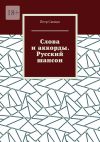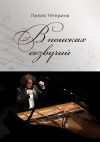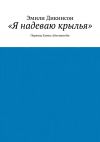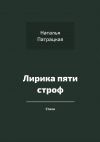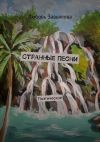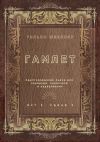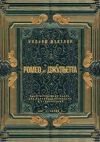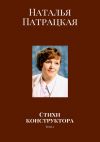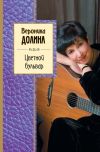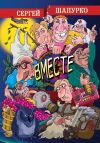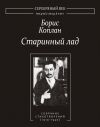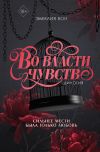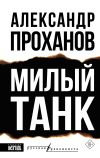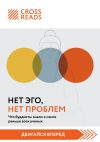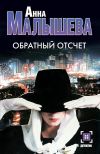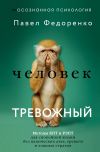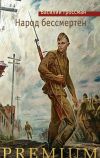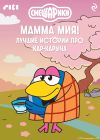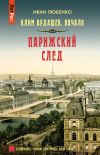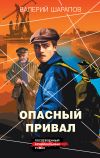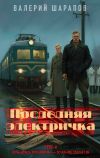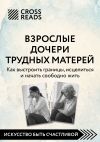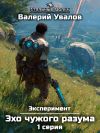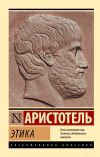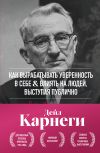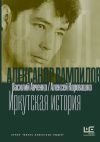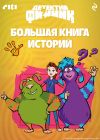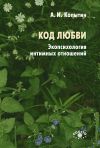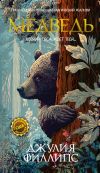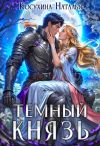Текст книги "Аккорды нового тысячелетия. Accords for New Millenium"
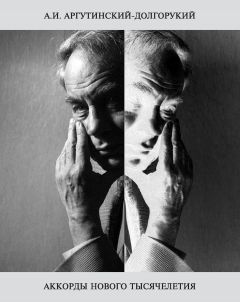
Автор книги: Ян Вильям Сиверц ван Рейзема
Жанр: Поэзия, Поэзия и Драматургия
Возрастные ограничения: +12
сообщить о неприемлемом содержимом
Текущая страница: 1 (всего у книги 6 страниц) [доступный отрывок для чтения: 1 страниц]
Александр Аргутинский-Долгорукий
Аккорды нового тысячелетия. Accords for New Millenium
© Аргутинский-Долгорукий А. И., текст, 2004
© Козинцев С, фото, 2004
© Фонд «Новое тысячелетие», 2004
Философский опыт поэта
Александр Иванович Аргутинский-Долгорукий родился в Москве, в 1934 году. Он принадлежит кругу, избравших литературный поэтический язык в качестве средства философского самовыражения, а философию, как метафорический знак принадлежности к Мыслящему Универсуму.
Поэтическое призвание, которое проявилось в нем с детства в связи с героикой исторических событий, он осуществляет под именем материнского рода – князей Аргутинских-Долгоруких, разветвляющих генеалогическое древо от древнеегипетского Псамметиха, персидского Артаксеркса Долгорукого, к Российским Рюриковичам и Романовым.
Призвание к философии, как и к поэзии, проявилось у него также рано, со студенческой юности, когда его назначают старостой философского кружка МГИМО (Московский государственный институт международных отношений).
Во внешнем мире, как философ и исследователь, он выступает под именем отцовского рода.
Согласно семейному архиву отцовская родовая линия ведёт начало от средневекового рыцаря Конрада Сивертсена, участника крестового похода 1088 года. Позднее потомки германского рыцаря осели в городе Реесум, с середины XVII века в голландском Амстердаме как Сиверцы ван Рейземы.(Siewertsz wan Reesema)
Ян Вильям Сиверц ван Рейзема, Александр Иванович Аргутинский-Долгорукий – таковы имена российского, европейско-азиатского мыслителя.
В первой стихотворной книге «Демиург», опубликованной в Москве в 1993 году, поэт так разъясняет функции имён: «Имена – функции мира. Язык науки – универсален, язык поэзии, как и истории, национален. Посему счёл необходимым имена отцовского рода соотнести с исследовательской деятельностью, материнского – с поэтической, связанной в моей личной истории с русским языком. В жизнетворчестве в равной степени должны сохраняться имена матери и отца.
Литературное имя Александр принял в честь князя Александра Михайловича Аргутинского-Долгорукого – своего деда по материнской линии.
Отчество – в честь другого деда той же линии – московского купца Ивана Рогожина.
Родной язык не просто душевность. Он настраивает систему смысловых ритмов и звучаний».
А. И. Аргутинский-Долгорукий / Я. В. Сиверц ван Рейзема – мыслитель высокой эйдетической (образной, метафорической) энергии.
Ему посчастливилось быть первым, кому удалось создать «Философию планетаризма» – теорию и учение, непосредственно связанные с практическим освоением космоса, становлением многопланетной цивилизации землян, раскрыть её культурно-историческую и инновацинно-прогностическую значимость.
Философию планетаризма автор истолковывает через взаимодействие естественнонаучных и гуманитарных понятий: с одной стороны, как развитие метафорических энергий, то есть энерго-информационно. С другой – духовно этически, культурно-цивилизационно, как проявление мыслительности в космической, планетно-физической среде.
В философии планетаризма, включая её поэтическую версию, автор отстаивает этику планетарных субъектов (человека, животных, растений, энерго-ресурсных, ландшафтных, культурно-исторические сущностей), необходимых для сохранения нашей планеты, как редчайшего мыслительно-энергетического проявления Вселенной.
Согласно философии планетаризма, планетарные сущности формируют судьбу нашей планеты. В этих судьбоносных отношениях они равноправные земляне.
Из постулатов философии планетаризма вытекают экологические, образовательные, социальные и мировоззренческие следствия.
Погружаясь в масштаб мышления автора, читатель как бы обязуется быть со-мыслителем, переживать планетарные ситуации как события личной исторической жизни.
Отсюда солидарность с чувственным миром автора, восприятием тревожной неожиданности его образов, с их новым лиризмом, трагическим сарказмом и уверенностью, порождаемой культурой.
Путь автора символичен. Он – воспитанник Ивановского интернационального детского дома, выпускник МГИМО, офицер военно-морского флота, научный сотрудник институтов Востоковедения и Социологии РАН.
К публикациям философских и поэтических книг приступил лишь в зрелом возрасте: первая стихотворная книга «Демиург» в возрасте 59 лет, «Философия планетаризма» – когда минуло шестидесятилетие.
К тому имелись основания.
В начале шестидесятых автор интенсивно переписывается и встречается с литераторами, поэтами. Ему писали Павел Антакольский, Эуардас Межелайтис, он многократно встречался с Л. Н. Мартыновым, Расулом Гамзатовым, во время службы на флоте дружил с Виктором Платоновичем Некрасовым, был связан в ранней молодости духовными и душевными узами с писательницей В. Д. Пришвиной, филологом, культурологом, семиотиком Ю. В. Рождественским.
Дальнейшую литературную судьбу решила встреча с критиком «Нового мира» В. Я. Лакшиным, пригласившим поэта к сотрудничеству с журналом.
Несмотря на хлопоты Лакшина сотрудничество не состоялось под давлением вышестоящей цензуры.
Лакшин сказал ему. «Не принимайте близко к сердцу. Это Вам знак. Работайте, как работали, еще более сосредоточенно и напряжённо! Энергия, направленность, масштаб Вашего таланта требуют этого. Не торопитесь с публикациями. Потом предъявите всё и сразу!»
Поэт отнесся к сказанному серьёзно.
Потом была еще одна встреча…заочная. С Юрием Владимировичем Андроповым.
На ввод войск Варшавского договора в Чехословакию поэт в дневнике откликнулся циклом стихов «Вторжение». Стихи были резкими, к печати не предназначались. Рукопись без ведома автора была доложена Андропову и с его резолюцией направлена в Институт Востоковедения.
Ю. В. Андропов сам писал стихи. Вот что было на полях рукописи. «Стихи очень интересные. С их политической направленностью категорически не согласен. Крайних мер к автору не применять! Юрий Андропов».
Это была охранная грамота для поэта и философа, принявшего защиту планетарной цивилизации в качестве верховной ценности.
Стихи цикла «Вторжение» автор опубликовал лишь в 1996 году в сборнике «Лики дня».
Но то была уже другая эпоха – побуждения, противоречия, возможности которой были предвидимы автором «Философии планетаризма».
В 1998 году Фондом «Новое тысячелетие» А. И. Аргутинский-Долгорукий был выдвинут на соискание Государственной премии.
Библиография произведений автора:
Поэтические произведения»: «Демиург», М; 1993, «Лики дня», М; 1996, «Лабиринт», М;1996, «Вольность», М;1996, «Гётеанум», М;1996, «Помпеи», М; 2000, «Музы в Хамовниках», М;
2003, «Икары и томагавки», М; 2004, «Метафоры», М; 2004
Философские исследования: «Информационный анализ социальных процессов», М.,1982, «Информатика социального отражения», М.,1989, «Мыслящий Универсум», М; 1991, «Философия планетаризма», М,1995, «Прогностические диалоги», М;1995
«Путь России» (под именем А. И. Аргутинский-Долгорукий), М;1997 «Философия планетаризма. Планетарный разум цивилизации», М; 2004
Президент Фонда «Новое тысячелетие»Умут Кемельбекова, академик РАЕН
Life Experience of a Philosopher and Poet
(Essay)
Alexander Iwanowich Argutinskiy-Dolgorukiy was born in Moscow in 1934. He belongs to a circle of persons who have chosen literature and lyric poetry as a means of philosophical self-expression, self-identification and cultural intercourse while philosophy serves as an immanent metaphoric sign of belonging to the Thinking Universe.
His poetic talent has become obvious since his childhood. He started writing poetry during the Great Patriotic War of the Soviet people against German Fascism and his lyrics were very much influenced by these historical events.
Now he publishes his verse under his mother’s family name. She belonged to the family of princes Argutinskiy-Dolgorukiy. This family traces its origins to Ancient Egypt Pharaoh Psammetih (663–610 B.C.) and ruler of Persia Artaxerx Mahashastra (465–424 B.C. – translated into Russian as “dolgorukiy”, i.e. man with long hands), and is related to Russian ruling dynasties of Rurikovichi and Romanovs.
His interest in philosophy also became apparent quite early: during his student years when he was appointed monitor of the student philosophical society in the Moscow State Institute of International Relations (MGIMO).
In his relations with the outer social milieu the philosopher and researcher is known under his father’s family name – Yan William Siewertsz van Reesema.
According to the family archives his father’s family is related to medieval German knight Conrad Siewertsen who took part in the Crusade of 1088. Later Conrad’s descendants lived in the town of Reesum in Holland and by the middle of the XYII century they settled in Amsterdam as the Siewertsz van Reesema.
This is a short biography version of a European-Asian thinker, philosopher, poet, researcher – Yan William Siewertsz van Reesema / Alexander Iwanowich Argutinskiy-Dolgorukiy. In his first collection of poetry “Demiurge”, published in Moscow in 1993, Alexander Iwanowich Argutinskiy-Dolgorukiy explaining the functions of names wrote: “Names represent functions of the world. The language of science is universal, the language of poetry as well as the language of history is national. That is why I think it necessary to correlate my father’s name with my scientific work and research activity while I connect my mother’s name with poetry, with my personal history, which is closely tied with the Russian language. In social life and in creative work names of mother and father should be kept in harmonious accord.
I have chosen my literary name Alexander to commemorate my maternal grandfather prince Alexander Mihailowich Argutinskiy-Dolgorukiy. My patronymic – Iwanowich – honors my other grandfather (same maternal side) – Moscow merchant Ivan Rogozhin.
Mother tongue, native language is not only an instrument to express spiritual energy, soul-searching. It rules and tunes the entire system of sign rhythms and sounds”.
Alexander Iwanowich Argutinskiy-Dolgorukiy/ Yan William Siewertsz van Reesema is a person of high eidetic energy. Few authors have succeeded to create comprehensive teaching like his “Philosophy of Planetarism” correlated with the practical formation of multiplanetary civilization of earthlings – all living creatures on the Earth, to interpret its key problems, its culture, innovation and prognostics.
The author gives his interpretation of “The Philosophy of Planetarism” through the interaction of natural-scientific and humanitarian notions: on the one hand, as development of metaphoric energy, i.e. energy-informatics level, on the other hand, as the result of complex cultural-civilization ethic-spiritual processes, realization of thought energy in cosmic and planets environment.
The poetic version of “The Philosophy of Planetarism” asserts the necessity of all planetarian subjects for the Earth survival as spiritual planet, the ethics of equality, equal “rights” for all planetarian entities: human beings, animals, plants, landscapes, and cultural-historical essences. They are equally important for our planet as the rarest manifestation of thought energy and life resource of our Universe. These postulates of ‘the Philosophy of Planetarism’ motivate further developments: ecological, educational and hence political-economic, social and world outlook consequences.
Absorbing the scale of the author’s thought the reader is expected to take the role of a co-thinker, he should live through these planetarian situations as if they have become an immanent part of his own personal life. These feelings should help penetrate deeply into the author’s world, to comprehend his unique cosmos with unexpected unusual word-forms and metaphors, new lyrical attitude, tragic sarcastic vein and assuredness, born by culture.
The author’s life bears some symbolism. He was brought up in the International Children’s Home in the city of Ivanovo, graduated from the Indonesian faculty of the MGIMO, served as a Navy officer, worked as a Research fellow at the Institute of Oriental studies and at the Institute of Sociology of the USSR Academy of Sciences.
His poetry and main philosophical works appeared in print rather late. The first book of verse “Demiurge” was published when the author was 59. “The Philosophy of Planetarism” came out at the age of 61. There were serious reasons for this delay.
In the early 1960s the author had a very intensive correspondence and contacts with Soviet progressive literary figures: he had intensive exchange of opinions with such well-known Russian poets as Pavel Antokolsky, Leonid Martynov, Eduardas Mejelaytis, Rasoul Gamzatov. During his army year’s novelist Victor Necrasov came to visit him, they exchanged views on how to use and interrelate innovation and classic elements in writing. In his early years he had close constructive contacts with Valeria D.Prishvina, a learned philologist, arts theoretician and writer. Yuri Rozhdestvensky, a renowned Russian culturologist and semioiogist, was among his closest friends.
A very important role for the practical realization of his poetical talent was played by Vladimir Lakshin, the leading critic of the top Russian literary monthly “Noviy Mir”. Lakshin offered him to publish some poetry in the famous magazine. But – alas! – in spite of Lakshin’s efforts the poems were rejected by the almighty ideological censorship. Lakshin comforted him: “Don’t be very upset! This is a sign for you. Go on, work as hard as before. And with greater concentration and more energy. Cherish your talent. Do not hurry with publications. Later on just produce all at once!”
In 1968 there was another very important meeting… in absentia…with Yuri V. Andropov (the head of the KGB at that time). The poet gave his personal estimation of the Soviet invasion to Czechoslovakia. The poetical cycle named “Invasion” expressed severe criticism of the events and obviously could not be published. It was designed only for the personal diary. Unexpectedly the manuscript had been laid on Andropov table, and with his resolution was dispatched to the authorities of the Institute of Oriental studies.
Andropov himself wrote poetry. Andropov remarks on the margins of Argutinskiy-Dolgorukiy manuscript read as following: “Poems are of great interest. I categorically disagree with their political approach. Don’t apply any extreme penalties to the author!” Signed: Yuri Andropov. Well, it was an effective charter of immunity for poet and philosopher who have chosen the survival of civilization as the supreme value. The poetical cycle “Invasion” was published only in 1996, they were included into the collection “Faces of a Day”. But that was quite a different epoch, which collisions, motives, contradictions and opportunities have been foreseen by the author of “the Philosophy of planetarism”.
In 1998 A.I. Argutinskiy-Dolgorukiy had been nominated by the “New Millennim Foundation” for the Russian state prize.
Bibliography of the author:
Poetry of A.I. Argutinskiy-Dolgorukiy
“Demiurge”, M; 1993, “Faces of a Day”, M; 1996, “Labyrinth”, M; 1996, “Liberty”, M; 1996, “Goethenaum», M; 1996, “Pompeii”, M; 2000, “Muses in Hamowniky”. M; 2003, “Ikarus and Tomagawks”, M; 2004, “Metaphors”, M; 2004
Philosophical researches of Y.W.Siewertsz van Reesema
“Information Analysis of Social Process”, M; 1982, “Social Reflection. Basis of Society Reason”, M; 1990, «Thinking Universe”, M; 1991, “Philosophy of Planetarism”, M; 1995, “Prognostic Dialogs”, M; 1995, “Way of the Russia”, M; 1997, (A.I.Argutinskiy-Dolgorukiy), “Philosophy of Planetarism. Planetarian Civilization Reason”, M; 2004
Umut Kemekbekowa,President of The “New Millennium» Foundation,Academician of The Russian Academy of Natural Sciences
От автора
Поэзия – это выбор вероятного из существующего по критериям информативности метафор. Таково кредо, которым руководствуюсь в поэзии.
Это затрагивает всю область поновления выразительных средств, что, как и в музыке, ведет к требуемой концентрации метафорических энергий.
Выдающийся русский исследователь мыслительности П. Д. Успенский писал в начале ХХ века: «Какое-нибудь одно маленькое стихотворение может жить тысячелетия, заставляя сотни людей работать на себя. Посмотрите, сколько потенциальной энергии в каком-нибудь маленьком стихотворении Пушкина или Лермонтова. Эта энергия действует не только на чувства людей, но самим своим существованием на их волю… Несомненно, что в каждой мысли поэта заключается огромный потенциал, подобный потенциалу, заключающемуся в куске угля или в живой клетке, но бесконечно более тонкий невесомый и могущественный. Это замечательное соотношение явлений может быть выражено так, что чем дальше видимое явление от осязаемого, чем дальше оно от материи, те больше в нём скрытой силы, тем большее количество энергии оно может освободить, и тем меньше оно зависит от времени. (Успенский П. Д. Tertium Organum. Спб 1911. с 101).
Соотношение характерно для древнекитайской, древнегреческой, персидской, китайской, английской, русской, германской, испано-португальской, французской, японской поэзии.
Каждый читатель, конечно, может привести свои примеры метафорических энергий, практики их развития и обновления.
Сказанное Успенским может быть отнесено к поэзии как таковой, если сравнивать ее с иными подсистемами духовной классической культуры.
Указания на культурную сторону поэзии значимо, если сравнивать поэзию с массовоинформационнными шлягерными текстовками, коммерческой, пропагандистской потребительской метафорикой.
Рекламно-коммерческая пропаганда в своих текстах направлена на инстинктивное программирование массовых аудиторий.
За счёт упрощения смыслов, снижения культурного разнообразия она добивается влиятельных социально-психологических эффектов, делая это путем разъединения сознания и подсознания, за счёт упрощения метафор.
Культурная поэзия обращена одновременно и к сознанию, и к подсознанию, стремится к их взаимодействию.
Поэзия способностью метафорической концентрации через слово направляет внесловесные духовные формы к сложному, комбинационному историческому и прогностическому выражению.
По этому критерию поэзия может быть отнесена к мифопророческому, гимническому, философическому личному и общественному семиотическому самовыражению.
В центре самовыражения – этически и эстетически должное.
В диалогической философии – это путь Платона. Собственно в поэзии – пути Данте, Шекспира, Гёте.
Поэзия через метафоры гносеологии объединяет образы естественных и гуманитарных наук. Пример тому – Леонардо да Винчи.
В современную эпоху духовно-планетарного становления наиболее полным социальным носителем метафорических энергий является английский язык, выступающий в роли мирового межнационального и технологического выразителя научно-конструкторского и информатического мышления.
Как поэт, причастный к этому выразительному средству, через Шекспира, эзотерическую романтику Эдара По, я ощущаю особую соотнесенность английского и русского языков, которая проявляется в поисках инвариантного воплощения информационного поля, устремлённости к мыслящему универсуму.
Но это и есть сущность поэзии как выразителя личной, национальной, земной, и космической жизни.
A Few Preliminary Words
Poetry is the most ancient type of expression of human thought and feelings.
Poetry means choosing probable out of existing things according to the criteria of informative metaphoric value. This is my creed in poetry.
Poetry is a constant development; updating and as such (as in music) it leads to a necessary concentration of metaphoric energies. Exchange of poetical experience is a long established tradition of human culture and civilization that needs constant development.
Here follow some fragments from my collection of poetry “Demiurge”, published in Moscow in 1993. Strictly speaking this is not just a translation but presentation of invariant reflections of metaphors in various periods of my life. The English version may be treated as an experiment, an attempt to widen sense and style, to broaden the dynamics of poetry using more comprehensive potentialities of Anglo-Russian bilinguals.
I express deep gratitude to my colleagues in the New Millennium – to Umut Kemelbokova and Igor Kolossov for their assistance and confidence in me and my ability to achieve a possible stylistic enrichment of metaphoric energy at the expense of the “Third party” (maybe even unknown to the author) unexpectedly for the author revealing itself as a kind of strong inspiring factor.
Our planet is a thinking living entity; it belongs to every manifestation of life and thought. The research of cross-cultural parallels is vital for human self-identification and survival. The metaphoric systems are immanent parts of the planetary civilization and culture. They are spiritual bridges between historical ancient eidetic and modern imagery. They tend to spiritualize probabilities, to attribute soul to a multitude of possibilities.
This correlation is typical for poetry of the Ancient Greece, China, Iran/Persia, England, Germany, Russia, Spain, France, Portugal and Japan. Every poetry-lover knows various examples of the interaction of traditional and innovatory models.
At the beginning of the XX century a prominent Russian researcher of thinking processes P.D.Uspenskiy wrote: “A short poem can live for centuries and preserve its life inspiring quality. It can contribute to the life of hundreds of people. Pay attention how much potential energy could be found in a small poem by Pushkin or Lermontov. This energy affects not only people’s feelings but also its very existence affects their will. …It is obvious that each poet’s thought contains a great amount of potential energy, similar to the potential of a piece of coal and a living cell. But the former is incomparably finer, lighter and more powerful. This wonderful correlation of the phenomena means that the further the phenomenon is from all visual and tangible, i.e. the further it is from matter, the more implied power the phenomenon possesses, the greater amount of energy it can free and the less it depends on time”. (Uspenskiy P.D. Tertium organum. S.Peterburg 1911, p. 101) This Uspenskiy formula can be applied to poetry as such, especially if compared to other sub-systems of classical culture.
Cultural poetry addresses both conscience and subconscious. According to these criteria poetry is akin to mythic-prophetic, hymnic, philosophical self-expression that centers on ethical and aesthetic imperative. It is the way of Plato in the philosophy of dialogue. It is the way of Dante, Shakespeare and Goethe in poetry as such.
Poetry unites eidos, images of science and humanities through gnoseological metaphors. A good example of this is Leonardo da Vinci.
In modern epoch of spiritual-planetarian civilization this tendency finds expression through the language, and nowadays the English language appears as the universal medium or intermediary of international metaphoric energies, as the language of fundamental science, technology and communication.
As a poet and philosopher dealing with the technology of expression I embrace eidetic symbolism of English through Shakespeare and esoteric romanticism of Edgar Poe, and I am aware of the specific interrelationship of the English and Russian languages, their association and belonging to the life of the Universe.
Внимание! Это не конец книги.
Если начало книги вам понравилось, то полную версию можно приобрести у нашего партнёра - распространителя легального контента. Поддержите автора!